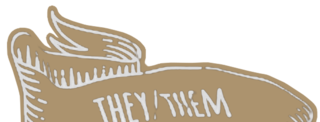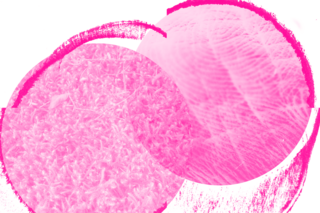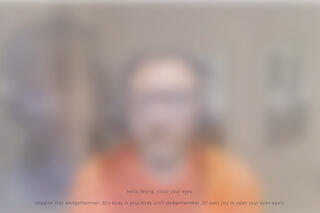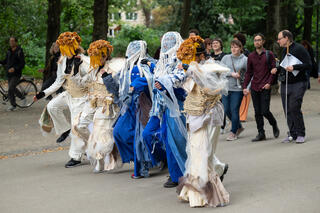COC 4/6
The Choreography of Care
The Choreography of Care (4/6)
Scottee & Friends
SCOTTEE
[…] I thought I’d just start off with an opening just to get us going:
What does care mean to you?
SAM
Space. A space to feel you can be authentic.
ASAD
For me, it’s being seen and understood. So, what are my needs? What do I need? What do I want? To have that appreciated by others.
JEN
Okay. Oh, it’s massive. I think the first thing that comes to mind when I think about it is trust, balance, boundaries and limits. The feeling of having permission to be allowed to communicate clearly in whatever way, or whatever format works for you.
SAM
It’s like if you’ve got a get out of jail free card. When I work with Scottee & Friends, it’s always pitched as, ‘Oh, should we do this? ... or not!’.
If you’ve got a get out of jail free card its less stressful because I can choose not to take part if I don’t want to.
SCOTTEE
For me, the words that spring to mind are,
‘being recognized’.
Care doesn’t always touch the right places and make it fine. I don’t have that expectation. It’s not a solver or solution, but it goes halfway to recognizing why things can be difficult. ‘I can see why these are your needs’ and ‘I can see why you need this’ and that for me is quite enjoyable.
ASAD
I guess there’s care with a capital C. So I’ll give you an example. In my current work in a very corporate job, I’ve taken time off for mental health. I’ve been given lots of space and training around care and in looking after myself and others. That capitalist space has provided an element of care, small c care. At the same time, I have productivity targets. I have utilization targets. I have to meet certain criteria to be able to get my bonus, for example. There’s care with a capital C, the concept of care, which I do think is anti-capitalist. There is also care in everyday moments, in smaller moments. For me, that’s often the stronger ones, even in the work that we (Scottee & Friends) do, things like check-ins. Formal check-ins, that’s a small action.
That is one part of care. For me, it’s what’s more tangible, something I can feel and experience. I agree that making the space broader and more accepting for everyone is good but that just feels like such a huge task. Sometimes I get overwhelmed with that, so I narrow it down, to what I can focus on? What practices of care can I implement along the way?


SAM
Yeah. I don’t work in a corporate place, but, I have friends that do, and I think it’s strange that places have a nap room, or rooms to be cared in which are born out of a graph that says ‘if we care for people, it improves their productivity’.
It’s a strange insidious application of care because they’re doing it to make money, because they now realise they can’t completely exhaust people because they don’t make as much money.
Weird.
JEN
Yeah. I think it’s capitalist care or conditional care. It’s interesting because it’s giving people enough care to continue working and producing products, but on condition that you continue to work in this way.
Just in any kind of work environment, in the arts, for example, offer you lots of things if you do particular things. There’s pressure to produce. I’m reading Dreaming Disability Justice by Leah Lakshmi Piepzna-Samarasinha, brownstargirl.org which is a brilliant book. It talks about care not being conditional or based on whether you are liked, everyone should have access to human based dignified care, regardless of whether you’re having a bad time, if you’re being a total asshole. That shouldn’t affect things because that’s how the brain works, sometimes it’s complicated.
I could just talk for ages about it.
Scottee & Friends Ltd.
Scottee & Friends Ltd. is a collective of artists, producers, makers and participants who make work about the conversations we tend to ignore. In this submission Sam Buttery, Asad Ullah, Jen Smethurst and Scottee discuss care in the arts, practices in their collaborations and the recognition of each other.
Scottee
My name is Scottee and I am a fat queer white person with ginger facial hair and big Elton John oversized glasses. Today I’m wearing a gray sweatshirt in my studio, which is in Salford. And behind me there are lots of books and art materials. I use the pronouns ‘he’ or ‘they’ but I don’t use male descriptors.
Sam
I’m Sam, I’m fat, camp and bald, hairless. I’ve got alopecia. I’ve got makeup on, I’m very dewy bordering on greasy. The background is just white. I’m wearing a tunic. You can’t see it so I will stand up. Pronouns. I think I use they/them, but who the fuck knows because I just want to flounce around in my dresses and have a wee in peace. That’s my pronoun, I think. (Laughter).
Jen
I’m Jen, my pronouns are they/them. I am a white, AFAB (Allocated Female at Birth), trans non-binary person. I’ve got brown hair that’s currently up in a tran-bun and I might take it down later on, and it’s like brown, like wavy slash curly with the kind of feeling of like a lion slash pony running across a moor, I’ve got lots of ear piercings and a labret piercing, which is just below my bottom lip. I’m wearing a black jumper with a scroll design on it, and then it’s got the words, they slash them written on it.
Asad
I am Asad. I’m a fat queer brown person. I have at the moment, longish curly, wavy black hair that is flicking down to the right-hand side at the moment. I am getting a hair cut soon but the long hair is here to stay. I’m wearing maybe not quite Elton John size, but large clear glasses. I have a black beard, which has a bit of grey in my chin now as you can see here and here. I am wearing a white linen shirt, which has seventies, Pakistani dad kind of embroidery on it. If you imagine the side of Pakistani bus, that’s kind of what the front of my shirt looks like. I am sitting in my bedroom slash office and on the wall behind me, I have a very cheesy live, laugh, love type heart that I was given as a gift, but it does mean a lot from the person that gave me that gift. It was just hanging up here behind me. It’s a grayish heart pillow hanging from the wall. It’s sentimental, so that’s what it’s there.


